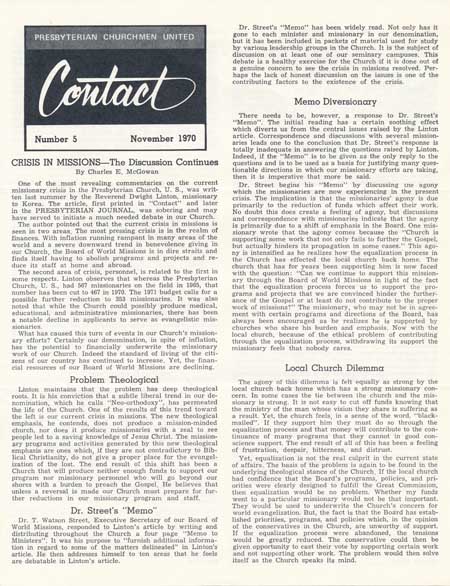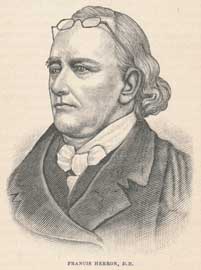Our God Is Faithful, from Generation to Generation.
On this blog, now nearing the end of its second year, we have on numerous occasions made use of the news clippings preserved in seven scrapbooks gathered by the Rev. Henry G. Welbon. Henry had a keen eye for the value of history, and those scrapbooks contain valuable coverage of the modernist controversy of the 1930’s. Additionally, Rev. Welbon also wrote histories of two churches that he served.
 Henry Garner Welbon was born in Seoul, Korea on September 28, 1904. His father, Arthur Garner Welbon [1866-1928], was a missionary sent to Korea under the auspices of the Presbyterian Church, U.S.A. Upon arriving in Korea in 1900, a year later he married Sarah Harvey Nourse, a missionary nurse who had arrived on the mission field a few years earlier.
Henry Garner Welbon was born in Seoul, Korea on September 28, 1904. His father, Arthur Garner Welbon [1866-1928], was a missionary sent to Korea under the auspices of the Presbyterian Church, U.S.A. Upon arriving in Korea in 1900, a year later he married Sarah Harvey Nourse, a missionary nurse who had arrived on the mission field a few years earlier.
The Welbons served at several mission stations, raising a young family there on the field, until Mrs. Welbon’s declining health forced the family to return to the United States in 1919.
Up until that time, Henry had attended the Pyongyang Foreign School in Korea. He then completed his secondary education in California, before the family relocated to Maryville, Tennessee. Henry graduated from Maryville College in 1927, though he had suffered the death of his mother in 1925, and his father returned to the mission field shortly thereafter.
Pursuing a call to the ministry, Henry entered Princeton Theological Seminary in 1927 and was there during those turbulent years that witnessed the reorganization of Princeton and which in turn led to the formation of Westminster Theological Seminary. Henry was one of those that left Princeton to complete his education at Westminster, graduating there in 1931. He was licensed just before graduation and ordained in September of 1931 by the Philadelphia Presbytery (PCUSA), being installed in what some term a “yoked” pastorate, serving both the Head of Christiana PCUSA church in Newark, Delaware and the Pencader Presbyterian Church in Glasgow, Delaware. Now settled as a pastor, he married his dear wife Dorothy the following June of 1932.
Following his convictions, Rev. Welbon led his congregations to take a stand for the gospel, though it meant the loss of their respective buildings. This was in 1936, and Rev. Welbon became one of the founding ministers of the Presbyterian Church of America [later renamed as the Orthodox Presbyterian Church]. Then in 1938, he was among those who left the PCofA to form the Bible Presbyterian Church, with Rev. Welbon serving the BP congregation in Newark, DE until 1942.
Our own records do not tell how he spent the years between 1942 and 1946, but in post-war years, his facility with the Korean language became important to the U.S. government. The government eventually wanted to relocate him to Korea, but wise friends there urged him not to take that appointment. Wise advice indeed, in the late 1940’s. Later in life, Rev. Welbon returned to missions, serving first as a teacher in Japan, 1966-69, and then as pastor of the Presbyterian Church of Boatswain Bay, Grand Caymans, 1969-71. Thereafter, he was honorably retired as a member of the Delmarva Presbytery of the RPCES.
In the closing years of his life, and after the death of his beloved wife Dorothy, Rev. Welbon got on a train in the Spring of 1999 and left his home in Tucson, Arizona to travel across the country to research his family history. This had been a life-long project, and he hoped to finally locate some of the last necessary bits of information. St. Louis was one stop in his journey, and I was honored to meet him at that time. He continued on to Washington, D.C. to complete his research and then returned home to finish writing his family history. Completing that work, he took it to the publisher and died the very next day, on December 11, 1999.
Words to Live By:
Arthur and Sarah Welbon had six children, two of whom died in Korea while still quite young. They lived their lives in service to our Lord, as did their son Henry. Time does not permit us to search out the lives of their other children, but of the surviving children, one of Henry’s sisters, Mary, was the ancester—the great-grandmother—of Gabriel Fluhrer, a graduate of Greenville Seminary who served for a time at Second Presbyterian Church (PCA) in Greenville, and who now serves as an associate pastor at the ARPC’s First Presbyterian Church in Columbia, South Carolina. And as Rev. Fluhrer himself once said, as he reflected on his family’s heritage,
“Praise God for His covenant faithfulness to generation after generation.”
Rev. Welbon authored four books, of which the first two are currently preserved at the PCA Historical Center:
A History of Head of Christiana Church. (1933).
A History of Pencader Presbyterian Church,. (1936).
A History of Christian Education in Delaware. (Univ. of Delaware, M.A. thesis, 1937).
A History and Genealogy of a Welbon Family which Came from Lincolnshire, England to Detroit, Michigan in 1854. (1999).
[with gentle humor, it’s hard not to notice, that when Rev. Welbon found a title he liked, he stuck with it!]
The grave site of the Rev. Henry G. Welbon can be viewed here.


